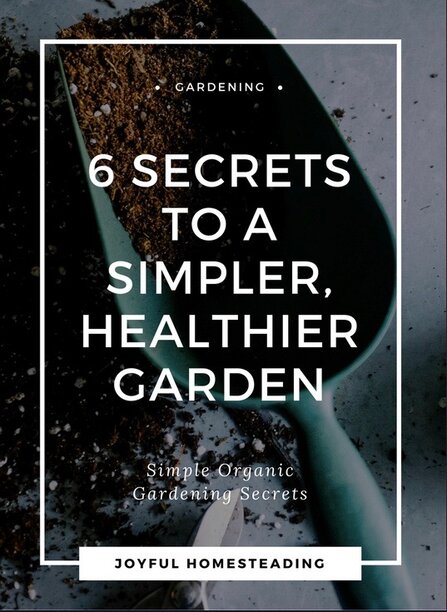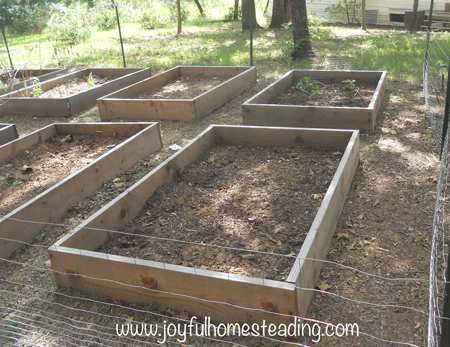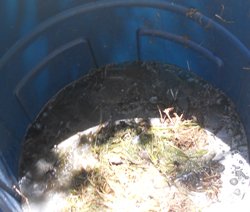Simple Organic Gardening
Simple organic gardening methods can make gardening productive as well as pleasant. Yes, there is work involved in growing your own, healthy food, but it why make it a miserable chore? Here are six secrets to make your gardening easier and more fruitful.

1. Build Raised Beds for Simple Organic Gardening
Most people who think of gardening think of plowing up a patch of land year after years, and breaking up the soil each spring to make it easier to plant seeds, but it doesn't have to be that way.
Instead, build raised beds by nailing wooden planks together into a six foot by four foot rectangle as shown in the picture on the right. Set them on the ground and fill them with one part compost, one part vermiculite and one part peat moss.

Don't make these beds any larger than four feet across and make sure you have room to walk between and around each of the beds. You need to be able to reach across to the center of the bed along its entire length without stepping on the soil. That way you won't have to step on the soil itself, and it doesn't get packed down, making it far easier to pull weeds later for simple organic gardening.
2. Build Your Garden Close to the House
The farther your garden is away from the rest of your daily activities, the less likely you are to remember to weed it and care for it. But if your garden is on the path between your front door and the driveway, it's easier to remember to stop and pull a few weeds. You might not want your vegetables growing in the front yard, but if the garden is closer to the house, it will also make it easier to water .
3. Invest in a Soaker Hose and a Timer
It's easy to remember to plant your garden, but a little harder to remember to water it everyday - especially if you work full time or have small children at home. If if you are a dedicated gardener there are times when you will be out of town, and your garden will suffer as a result.
So invest in a soaker hose and place it along your plants, holding it in place with wire pins. With a soaker hose, the water is supposed gently seeps into the soil, and there is far less loss through evaporation, so set the water on trickle level, rather than full gush to keep your hose from developing leaks. Then set the timer so the hose turns on every day at a certain set time, preferably in the early evenings.
4. Save Your Weeds to Make Homemade Fertilizer
After you pull those weeds, put them to good use. Keep a pail (preferably a dark colored one) with a lid near your garden beds and store your weeds in there, covering them with water.
After a few days, the weeds will begin to decompose, leaking nutrients into the water.

This liquid fertilizer will be too strong to put directly on your plants, so dig a small trench about 12 inches away from your plant and pour the fertilizer there. It will soak into the soil where the plant's roots can pick it up.
5. Compost, Compost, Compost
Save everyone of your kitchen scraps, except for meat, and store them in one of those black plastic, 50-gallon trash containers with a lid. Drill a few holes in the sides to allow excess water to escape.
With a good, secure lid, you can also close the container, flip it on its side and roll it back and forth to stir up the compost and help it aerate and break down more quickly. Add the finished compost to your garden on a regular basis.
6. Simple Organic Gardening Secret: Compost Worms
Invest in a worm composter or simply add red wigglers to your raised beds. They will help aerate and fertilize your soil, providing your plants with the nutrients they need.







New! Comments
Have your say about what you just read! Leave me a comment in the box below.